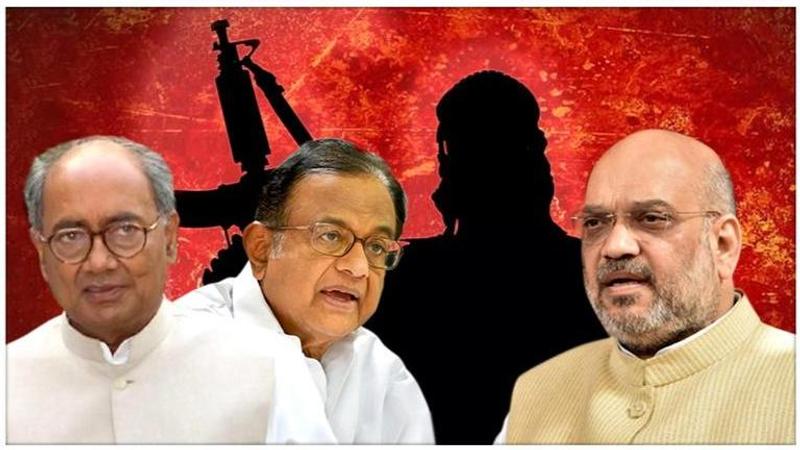Published 20:42 IST, August 2nd 2019
UAPA Bill: Here's why Congress' opposition to the Bill appears dangerous at this time
In a big crackdown on terrorism, the Rajya Sabha on Friday passed the Unlawful Activities Prevention Amendment (UAPA) Bill with 147-42 vote margin following a heated debate on the floor. However, Congress Rajya Sabha MPs P Chidambaram and Digvijay Singh expressed objections to the UAPA Bill.

In a big crackdown on terrorism, the Rajya Sabha on Friday passed the Unlawful Activities Prevention Amendment (UAPA) Bill with 147-42 vote margin following a heated debate on the floor. However, Congress Rajya Sabha MPs P Chidambaram and Digvijay Singh expressed objections to the UAPA Bill. Notably, the Congress party opposed the labelling of an individual as a 'terrorist' as per the provisions in the UAPA Bill.
P Chidambaram Opposes Amendments
Speaking about a certain section in the bill, former Finance Minister and senior Congress leader P Chidambaram alleged that the Central government is meddling with personal liberty. He opposed the bill in the Upper House, saying that he is against the Centre's power to name an individual, as per amendments made in the bill.
"We are not opposing fight against terrorism, we are opposing the mechanism by Central government to name an individual. The real mischief is Section 35 Sub-section 2 and which reads - The Central govt shall exercise its power under clause of the sub-section with respect to an organisation or an individual only if it believes such organisation or individual is involved in terrorism."
The Congress party went onto urge house not to give importance to affiliation to any organisation, but imagine the consequences that an individual may face when named only because of Centre's 'belief'.
"If central government believes that an individual is in terrorism then there is no FIR, no charge sheet, no trial in court, no charges, you will be named. Naming a terrorist organisation, naming an individual is not same," he claimed.
Digvijaya Singh alleges BJP targetting one religion
Addressing the Rajya Sabha, senior Congress leader Digvijaya Singh alleged that the BJP government has created misconceptions targetting a 'particular religion' deeming them all terrorists.
"We believe that terrorism has no religion but you people (BJP) have created an atmosphere against one particular religion that those people are linked to terrorists. But who are the three most wanted listing on NIA?" the Congress leader said.
Amit Shah's befitting reply
Responding to the objections raised by the Opposition, Home Minister Amit Shah said four-level scrutiny has been provided in the amendment and no human rights will be violated. He further argues that it is important to declare individuals as terrorists because they float through different organisations once their institution is banned.
"Individuals can be declared terrorists if they commit or participate in acts of terrorism, prepare or promote terror. The amendment will expedite prosecution in terror cases," the Home Minister said.
What is the Unlawful Activities (Prevention) Amendment Bill (UAPA)?
It proposes to amend the Unlawful Activities (Prevention) bill, 1967, under which an investigating officer is required to obtain the prior approval of the Director-General of Police to seize properties that may be connected with terrorism. The UAPA Amendment Bill allows the government to label an individual as terrorist if he/she participates or commits terror acts. Previously, the Centre had the power only to designate an organisations terror group and not the individual as a terrorist. Furthermore, as per the new provisions, the NIA (National Investigation Agency) Director-General is empowered to grant approval of seizure or attachment of property during the investigation of the case by the agency.
Updated 20:42 IST, August 2nd 2019




